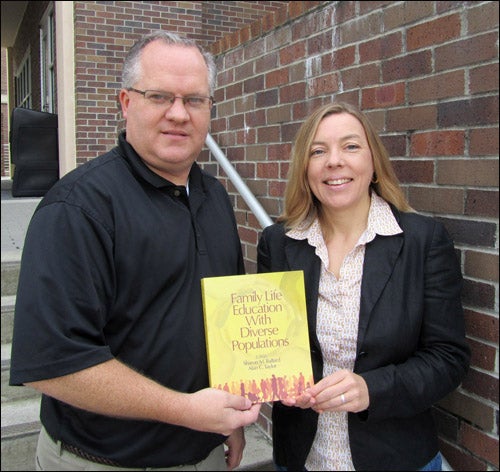New book guides family life professionals working with diverse populations

ECU professors Alan Taylor, left, and Sharon Ballard have published a book to help family life professionals and students work within a global society. (Contributed photo)
East Carolina University certified family life educators Sharon M. Ballard and Alan C. Taylor have compiled strategies for working with 11 diverse family groups in their new book, “Family Life Education with Diverse Populations.”
The book is aimed at students and professionals who need cultural competence for best results in working with families in today’s global society. Ballard and Taylor present best practices for family life education, followed by examination of the unique characteristics and strengths of the 11 family groups.
“Our book pulls together the best of what is known about working with these 11 populations in order to provide a foundation and a starting place for family life educators,” Ballard said.
“Each chapter is written by authors who have experience with the particular population.
Among the groups examined are rural, military and court-mandated families, prison inmates and their families, grandparents raising grandchildren and lesbian, gay, bisexual and transgender families. Additional chapters examine the unique characteristics and strengths of American Indian, Latino, Asian, black, and Arab families.
Additional ECU faculty and students in Child Development and Family Relations contributed to the text.
Faculty members Elizabeth Carroll and Catherine Smith, who work with the Essential Life Skills for Military Families curriculum, contributed the chapter on military families. Family studies faculty member Eboni Baugh contributed work on black families and grandparents raising grandchildren. Graduate student DeAnna Coughlin co-authored the chapter on black families.
Ballard and Taylor stressed the need for those who work with families to be culturally competent. Taylor said the book “presents a good balance of research-based information and practical experience” to help both students and professionals work effectiveness with families in the community.
###